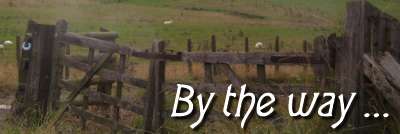|

19. A FIRST-WORLD-WAR ECCENTRIC
with RICHARD GRAVES
The history of popular song reminds us how dearly throughout the ages
soldiers have loved to sing. Just think of the repertoire at their disposal
- The Agincourt Song, Lili Marlene - and in between a host
of unforgettable ditties written during the 1914-1918 War. The Musical
Herald (November 1916) gives an amusing account of the way that one
philanthropic lady singer used her talents to entertain soldiers who had
been wounded at the Front and sent back to England. She was a professional
soprano called Florence Parbury, though she had other talents as well. We
are assured 'she is a splendid whistler, yodeller and vocal banjo, and brings
down the house with her imitations of farmyard fowls, peacocks, doves and
cats.' Florence lived in a large house in London's West End and was obviously
well-connected - indeed, she claimed family links with Alfred the Great.
Each week she invited groups of soldiers to her home for a sing-song, tea
and cakes (not burnt ones, one hopes).
'The soldiers crowd in here looking more or less glum' she reports, yet
'after a sing-song the change in their faces is past belief'. Despite -
or perhaps because of - her training with, among others, the great Jean
de Reszke, Florence apparently had not only a fine soprano voice but also
'can sing with surprising baritone quality'. She boasted also to have been
'one of the first women to fly ... the most thrilling sensation one could
have.' Her biggest excitement, though, was hearing her guests join lustily
in the choruses. As for repertoire, 'the men are fond of anything they can
harmonise, like Annie Laurie .... but they are fond of The Long,
Long Trail, Broken Doll, or any sentimental song.' You had to
be careful, though, in your choice of item. Not unreasonably she warns that
'it is no use singing a topical Scotch song to a New Zealand audience.'
To raise money for her parties, she would 'sell china copies of her lucky
black cat.' Alternatively, a subscription of Three Pounds enabled a well-wisher
'to become hostess for the afternoon for forty men.' She notes 'It is easy
to see how extraordinarily musical our Tommies are. In the first verse of
a chorus they will be straining their ears attentively, in the second verse
half the men are singing, and in the third verse they all know it.'
It's tempting to take the mickey, but Florence Parbury must have been
a great character. I would gladly have given more than the cost of one of
her black cats to have shared in one of her parties, farmyard imitations
and all.
Copyright © 27 July 2000 Richard Graves,
Weston-super-Mare, Somerset, UK
 << Music &
Vision homepage The first screen musical? >>
<< Music &
Vision homepage The first screen musical? >>
|